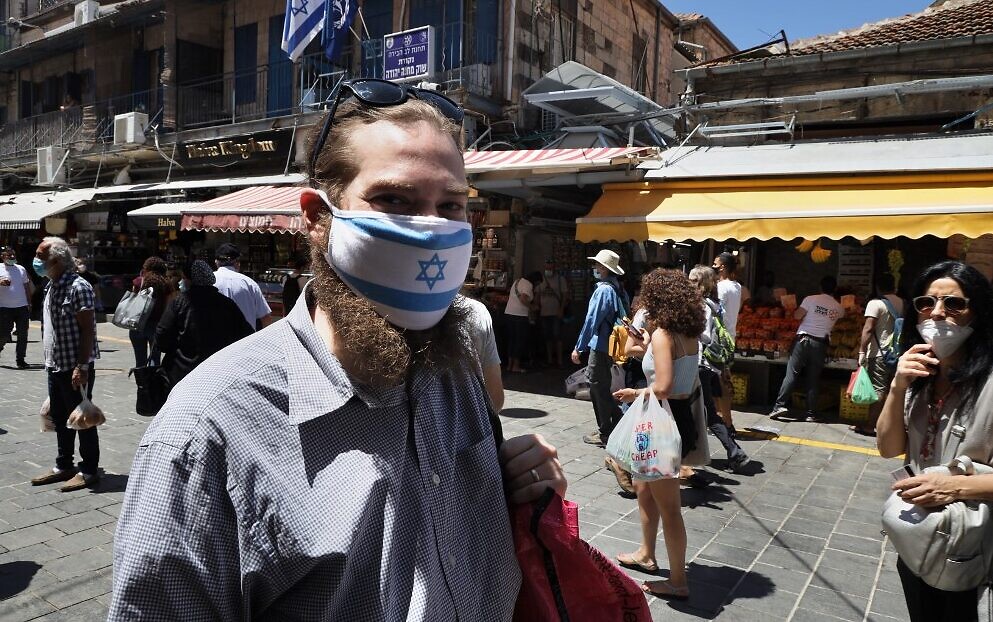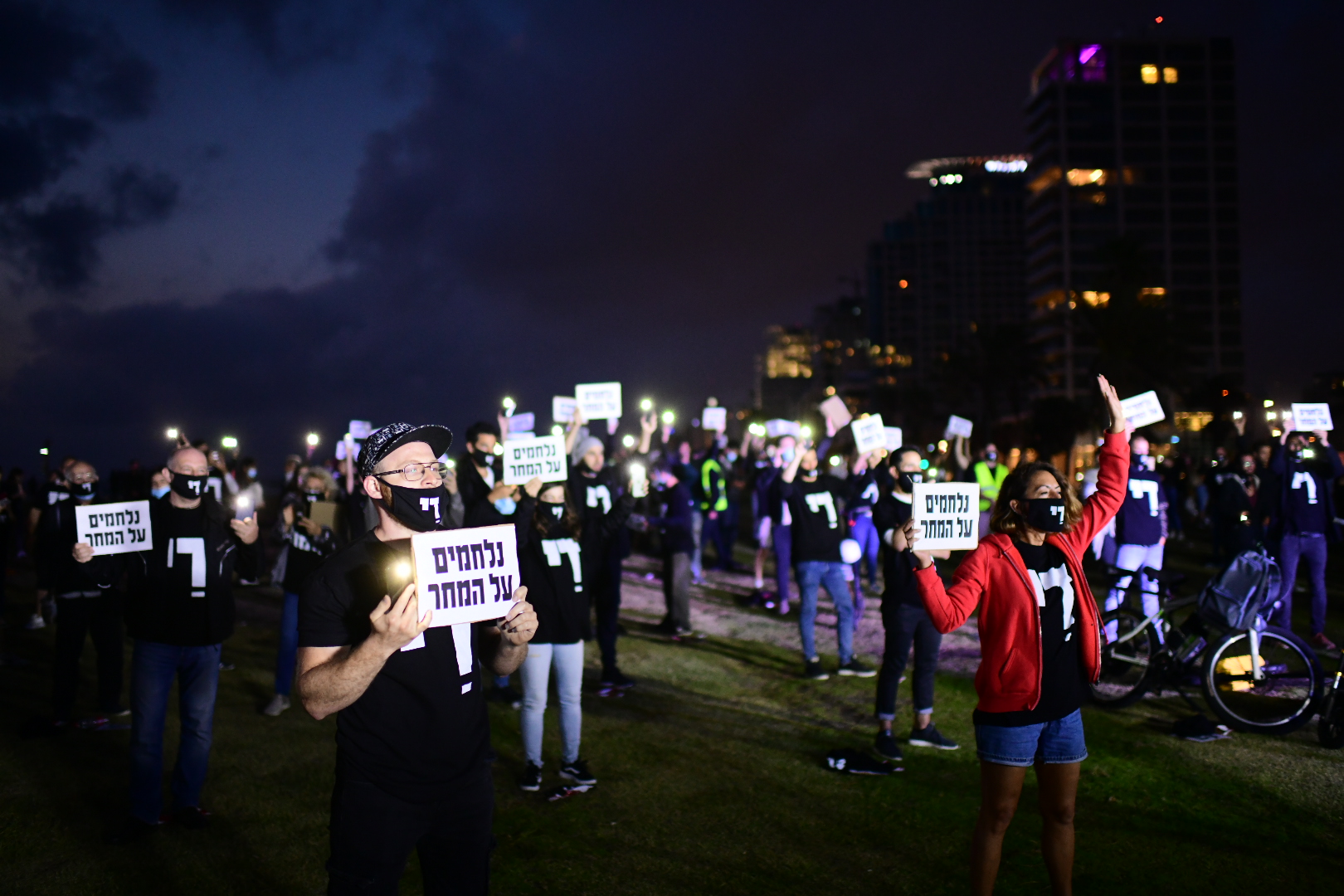Public more critical of PM’s economic handling of crisis, with 53% approving, and 57% worried about their financial future

A clear majority of Israelis approve of Prime Minister Benjamin Netanyahu’s performance during the coronavirus pandemic from a health perspective, though he scored lower marks for his handling of the economy, according to a television poll aired Saturday.
Along with a number of top Health Ministry officials, Netanyahu has been the public face of the country’s response to the virus, frequently giving televised statements in which he announced new restriction guidelines and implored Israelis to adhere to government directives.
With the number of new infections steadily dropping and the death toll at a relatively low 247, the government has begun loosening the measures put in place to curb the virus’ spread, with Netanyahu announcing a dramatic easing of social distancing restrictions on Monday.
Asked how they assess Netanyahu’s handling of the COVID-19 crisis on the matter of health, 74 percent of respondents to the Channel 12 news poll said they approved, while 23% disapproved.
Among those who defined themselves as right-wing — Netanyahu’s base of supporters — 88% approved of his actions, and 12% disapproved. For respondents who consider themselves left-wing, 58% approved of the premier’s performance, with 39% disapproving.

The network asked Israelis how they assessed Netanyahu’s handling of the economy during the crisis. His approval rating for the economy dropped to 53%, and 43% said they disapproved.
Divided along partisan lines, 70% of self-identified right-wingers approved and 27% disapproved of Netanyahu’s economic response. On the left, 30% said they approved and 66% disapproved.
Overall, 57% of poll respondents said they were worried about their future economically because of the outbreak, whereas 41% are not.
Israel’s economy has been severely damaged by the pandemic and government lockdowns. Unemployment figures leaped from a record low of 4% at the beginning of March to 27% in April, with 1.2 million jobless, as many businesses were forced to close their doors while the public was ordered off the streets.
Hundreds of small business owners and self-employed workers have regularly protested for increased government assistance, and businesses and economists have decried what they call a lack of economic leadership in Israel’s pandemic response.
The Finance Ministry on Friday said it plans to expand the government’s economic rescue package for the coronavirus crisis by NIS 15.6 billion ($4.4 billion), bringing the total response to NIS 100 billion ($28.5 billion).
The aid package is relatively small compared to what is being offered by similar countries.

A plurality of Israelis — 42% — said the issue that most worried them about the pandemic was health concerns, followed by 33% who said their livelihood. Another 13% said the functioning of the education system was their biggest concern, while seven percent cited the political situation.
Seventy-two percent of respondents said Israel’s Health Ministry Director-General Moshe Bar Siman-Tov had performed well, or very well, and 21% said his handling was poor or very poor.
A majority of respondents — 67% — said Health Minister Yaakov Litzman’s performance was bad, or very bad. Litzman said in late April that he was leaving the position after serving as head or de facto head of the ministry for most of the past decade.
He said he would “prefer to address the housing shortage” in Israel, but it was not clear he would be given the Housing Ministry.
Litzman’s decision to switch ministries came after he faced criticism over his response to the coronavirus pandemic and a TV report alleged he took part in a group prayer that violated his own ministry’s directives days before he was infected with COVID-19, as well as for reportedly resisting the closure of synagogues and other religious institutions.

The survey was conducted for the network by pollster Manu Geva and included 515 respondents. No margin of error or polling date was provided.
Israel has fared relatively well during the pandemic. On Saturday evening it marked two weeks since more than 200 virus cases were recorded in any 24-hour period, with a very low 18 new infections reported over the past day.
It also marked one week since there were more than 100 new cases in any one day.
The death toll stands at 247. A total of 16,454 Israelis have been infected by the virus, and 11,376 have recovered, as of Saturday evening.
As reported The The Times of Israel
